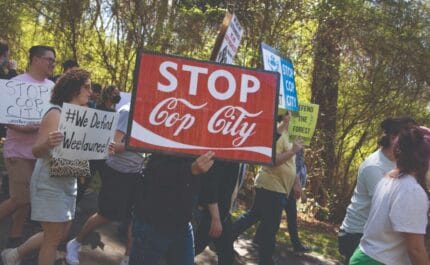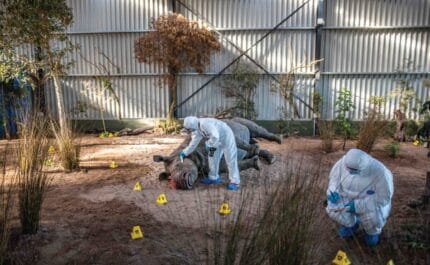The accidental envoy
On 1st January 2014, Victor Spirescu flew into an uproar in the UK about uncontrolled new immigration from Romania and Bulgaria. Four months after his arrival, he spoke to us about his trial by media.
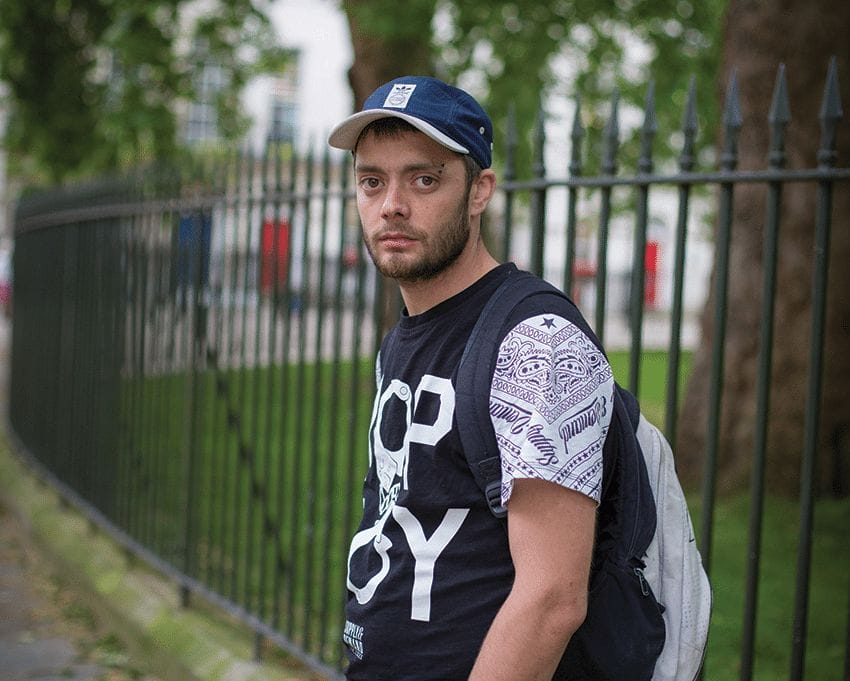
Photography: Jessica Parry
1st January 2014 (Taken from: #14)
UPDATE: In the early hours of 15th January 2018, Victor Spirescu died in a car crash near his home in Milton Keynes. After this article was published, Victor got a job managing an air-conditioning company; in 2016 he told a reporter that he earned £58,000 a year. At the time of his death he was engaged to marry Suzana Mates, 23, who he proposed to on holiday in Cyprus.
Victor Spirescu has a bat tattoo on his neck, marks on his arms and the words ‘Carpe Diem’ inked on to his belly. He is sitting in a central London wine bar, his t-shirt pulled up to his nipples, tracing the words with his finger. “Seize the day,” he explains, just to be clear. He doesn’t usually drink in such a salubrious neighbourhood, but his temporary job for the next few weeks – as a window fitter – is just around the corner. He is new to the country, one of millions of young men who have travelled to London from eastern Europe over the past decade, looking for work and the chance of a better life.
“A lot of people said bad words when I told them I was going to England,” Spirescu says, in good but heavily accented English, of his decision to leave his village in central Romania for the UK last year. “They said: ‘Why the fuck are you going there? You’ll make us look like a shit country. You’ll get drunk. You have your own house here and … and a wall of wood.”
A fence, I suggest.
“Yes, a fence. You have your own fence.”
Spirescu ignored their advice. The house with its own fence was not enough. He wanted his own business and financial security. He wanted an iPhone. Most importantly, he wanted to impress people back home. “I want to make my house the best house in the village,” he says. “I want everyone in the village to say, look at him, he’s a man from the city.”
So he flew to England and straight into the centre of a full-blown media circus.
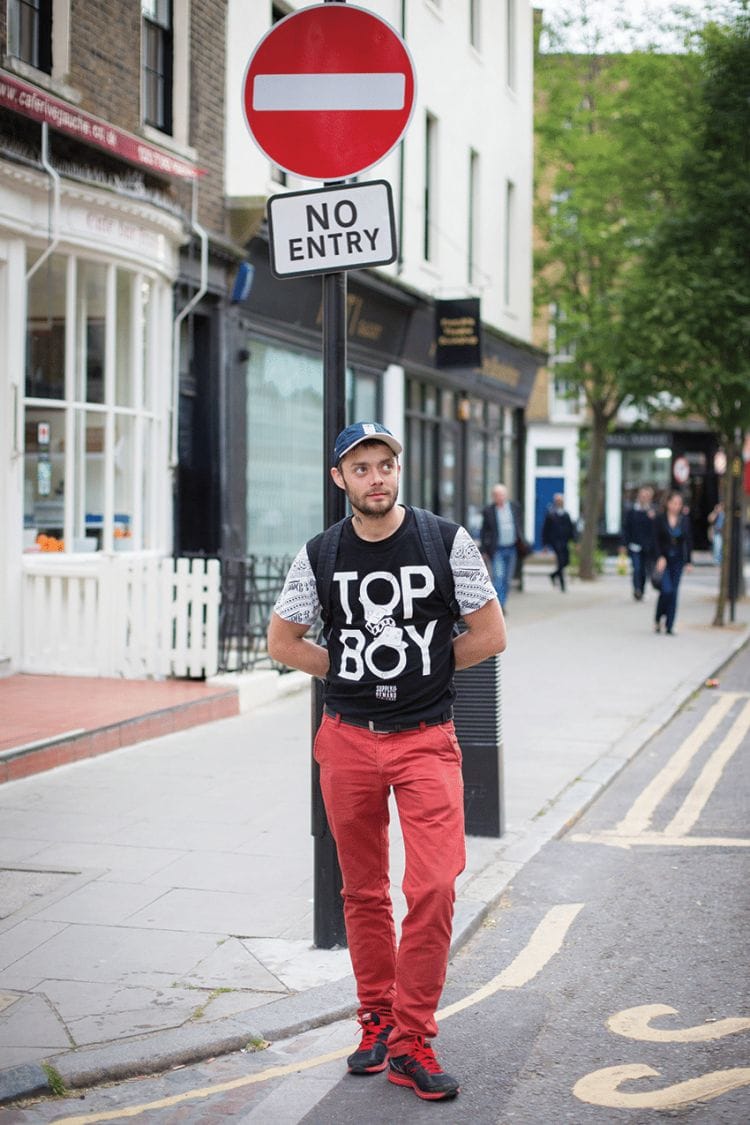
1st January, 2014 was supposed to be day zero of the immigration apocalypse. For months the British tabloid press had hysterically warned about the impending flood of Romanian and Bulgarian migrants who would enter the country once movement restrictions – imposed as a condition of the two countries joining the European Union in 2007 – were finally lifted. There would be millions, the papers said, all looking to take benefits and low wage work.
When the big day came the Daily Star ran with the headline: “New Year’s Thieve!”, chronicling an alleged crime wave by the Roma, a distinct ethnic people that live and are persecuted across Europe. But it was close enough. The Daily Express was more direct. “Benefits Britain Here We Come! Fears as migrant flood begins” screamed the headline. “Britain will today be hit by the first wave of Romanian and Bulgarian migrants keen to take advantage of our generous taxpayer-funded benefits,” the article began. “At least 5,000 are expected in the first week alone.”
According to the tabloids the official government numbers would, if anything, be an underestimate. When Poland joined the EU in 2004, the UK government at the time estimated that 13,000 Poles would migrate to the UK. By 2011 the UK’s Polish population had risen by half a million. And the same would happen again, this time with Romanians and Bulgarians.
Dozens of photographers and journalists were dispatched to ports, coach and railway stations across the country to document the deluge. But most made their way to London Luton airport where the first flight from Romania on 1st January, W63701 from Târgu Mures in central Transylvania, was landing. This would be where the first wave of Romanian migrants broke, and Victor Spirescu was the first person to waltz through the doors.
I know you have a queen. You have the double bus. You have Big Ben and your soldiers wear big hats”
Keith Vaz, the former Labour minister, was waiting for him. “Why are you here?” Vaz asked after buying him coffee. “What do you want? What do you know about the United Kingdom?” For the next month Spirescu became the bearded, slightly bewildered face of Romanian immigration. His photo was splashed across the front pages. TV appearances followed, one with UKIP leader Nigel Farage, making immigration hay as the European elections loomed. His progress was tracked. For a month his every movement, past crime and misdeed was recalled and recounted. Previous convictions and indiscretions were unearthed, proof of the undesirable character of those coming to the UK. “I thought,” he says, sipping his second beer and recalling those weeks he briefly became the most famous Romanian in Britain, “it is not so good to be a famous guy in England.”
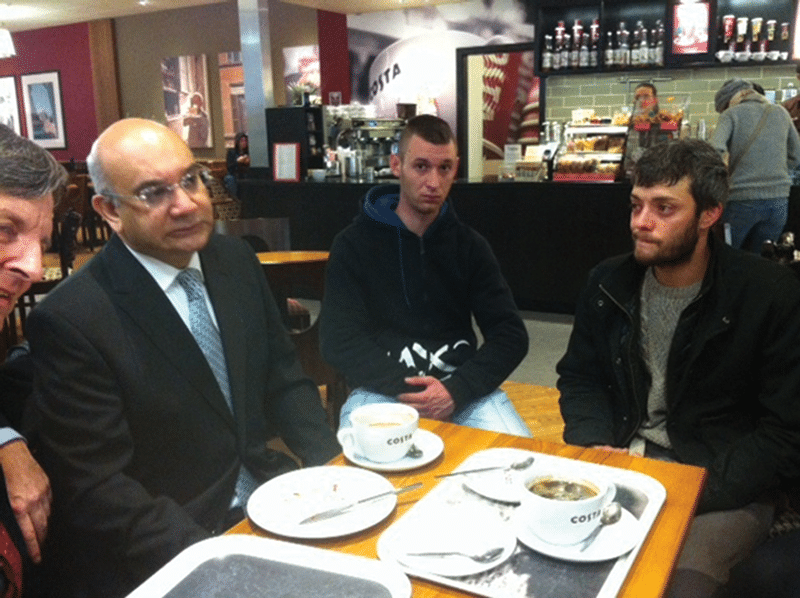
Home affairs select committee chairman Keith Vaz greets Victor Spirescu at Luton airport. Photo: PA Wire/Press Association Images
When Victor Spirescu awoke in his village, Pelisor, on the morning of 28th December, 2013, he had no idea that in four days’ time he would have agreed to leave for a new life in a country he had never visited before. He had been working a series of jobs as a handyman. There is an Orthodox nunnery nearby, and he had helped to build an outhouse and a new barbecue for the nuns. “Someone comes to me on that day, a friend, and says: ‘Do you want to come to England to wash cars?’ And I asked how much money. He said: ‘£30 a day’. That’s 150 leu! I thought, yeah, good money for that time of my life.” And that was that. In a few days he had packed up and was on his way to Târgu Mures international airport, having been lined up with a start date of 2nd January at a car wash in Biggleswade and a shared bed in a house with two other Romanians.
When he went to collect his baggage at London Luton it was clear something was up. Well-dressed Romanian women were roaming the baggage hallway asking questions. Spirescu took his bag and moved quickly outside, where he saw the welcoming party. “I take my baggage and take it outside and someone comes to me and asks if this is the first time in England? Why? I come here to work and make money, I’m not here to rob you,” he says. “After that [there were] four or five guys with mics and cameras and I’m thinking ‘what the fuck, man?’ I couldn’t believe what was happening.”
The strangest element, though, was the presence of MP Keith Vaz. “I see that guy, you know, Keith Vaz, with a Romanian girl and I asked her: ‘Who the fuck is this guy?’ She tells me that this is the day they opened the border. I didn’t believe it.” Spirescu had no idea until he got to Luton Airport that the law had changed. He had no idea who Keith Vaz was or why he was there. Or why everyone wanted to interview him. “He asked me what things I know about England: I know you have a queen. You have the double [decker] bus. You have Big Ben and your soldiers wear big hats.” Vaz fared equally as well. “I said the same thing to him: ‘What you know about Romania?’ and he said ‘Oh, Dracula, [former Romanian footballer Gheorghe] Hagi and [disgraced and recently-jailed owner of Steaua Bucharest] Gigi Becali’. What I know about England is what he knows about Romania!”
I tell him, that guy who got me the job, ‘What the fuck, man? Why did you put me here in Biggleswade?’”
For a few days Spirescu thought that would be the end of it. He started washing cars but the work wasn’t what he had thought it would be. “When I see how hard it is to wash cars, 100 a day, it was terrifying work, man,” he says. “I tell him, that guy who got me the job, ‘What the fuck, man? Why did you put me here in Biggleswade?’” The reporters soon followed him. They turned up at his work asking for interviews. A few enterprising journalists took their cars through the wash, asking Victor for quotes as they passed. At one point he was getting more than 40 calls a day from journalists. So he quit. The story of a man quitting his job at a car wash in Bedfordshire became national news. “Then someone from a big news channel said can we do an interview,” he remembers. “And I said: ‘If you give me some money.’ She gave me £200 pounds for ten minutes.”
Ironically, it was the money paid by this organisation and others that kept Victor in the country. He used half of the £200 to rent a bed in a new house for two weeks, bought some work clothes and managed to find a job on a building site. He wasn’t earning £30 a day anymore. Now he was earning £180 a day as a plasterer. Things were looking up until, one day, Victor was told that he was in the papers again. But this time it was serious. Victor, it turned out, had a conviction back in Romania for assaulting a former girlfriend. The Daily Mail headline read:
“Romanian migrant treated to Costa Coffee by Keith Vaz is accused of being a drug user who beat up his girlfriend and threatened to drown her.”
“Someone from England from The Sun and the Daily Mail goes to Romania and searches my private life,” he says, shaking his head incredulously. “They find fucking bullshit about my girlfriend. She stole my car.”
But you did hit her, right? So you probably deserved it…
Victor agrees. He did hit her. He was fined and given a 35 day sentence. He had a past too. In his teenage years he had fallen into drug use. But he hadn’t used for ten years. “I don’t believe the English people should know my past,” he said. “It didn’t affect me. I don’t work with English people. Only with Romanian, Polish.”
Despite the experience, Victor stayed. Surprisingly, he isn’t bitter about his few months in the media machine. On reflection, he’s proud. “When I think about it, it was a big, big day for me. From that day, you know, I was famous. Now I think it was a great experience. In Romania you can’t sit at the table with a politician if you are a man from the village.”
The deluge failed to materialise. Of the projected 5,000 Romanians and Bulgarians, fewer than 30 arrived in the first week, according to the Romanian ambassador to the UK. Official figures released in May showed that the number of Romanians and Bulgarians who had entered the UK in the first quarter of 2014 had actually gone down compared to the same period the previous year.
As for Victor, he is hustling his way around London from job to job. His life is much like that of any other recently arrived migrant. He tells stories of evil English landlords, evicting him with three days’ notice. Of people living five to a room. Of employers sacking people on the spot. Of a life of insecurity and zero protection. “It is a great system, if you are a boss,” he says. “If you don’t work harder than the next man, then you are cut. Replaced. But I want money. That’s my reason to come here, to make money, go home, make a pool in my village. To have enough money to live in Romania and be a boss. Have my own business.”
What business would you have, I ask. He thinks about this for a moment. “Grow animals,” he replies. “Have a little farm. After you grow them you take them to the abattoir and after you sell the meat at the supermarket.”
A few weeks after we meet, the European elections take place. UKIP and Nigel Farage deliver their promised political earthquake thanks largely to an incessant denunciation of eastern European immigration. In the days leading up to the vote, Romanians feature prominently. Farage informs one newspaper that he wouldn’t want a Romanian for a neighbour. On the day of the vote, my phone rings. It’s Victor. “Hey, this Nigel Farage, man, what the fuck?” he says without introduction. “Do you have his phone number?”
No, I don’t. I can’t help him. But what do you want with Farage, I ask?
“I want to find him,” he says, “and tell him to stop talking shit about Romanians.”
Slow Journalism in your inbox, plus infographics, offers and more: sign up for the free DG newsletter. Sign me up
Thanks for signing up.
